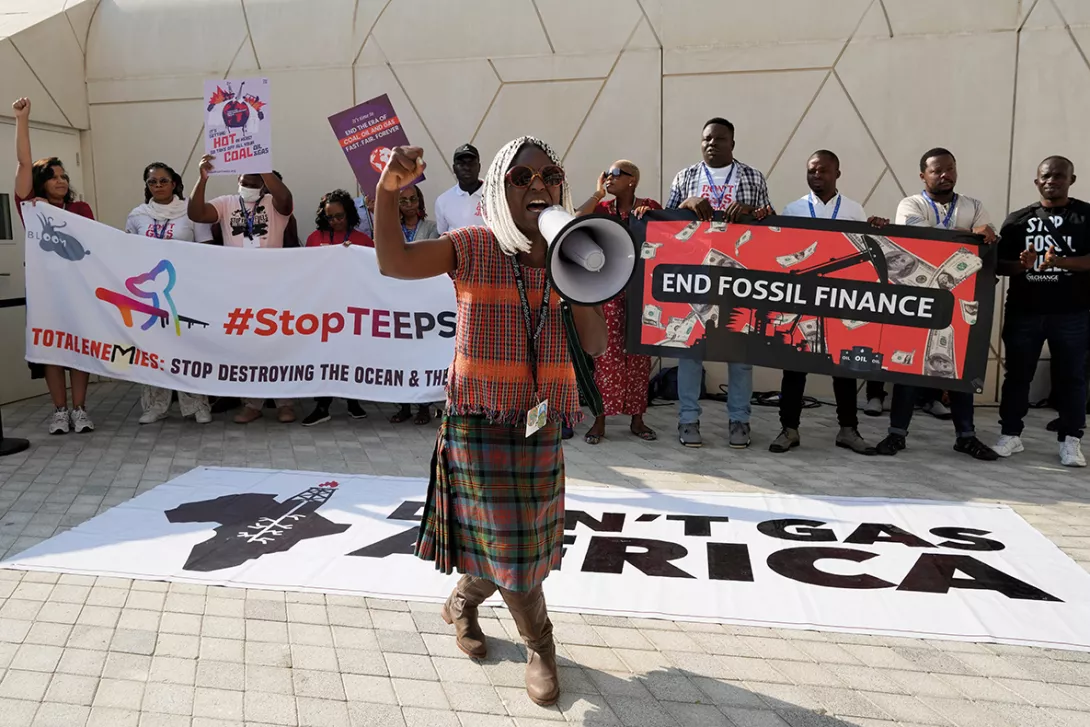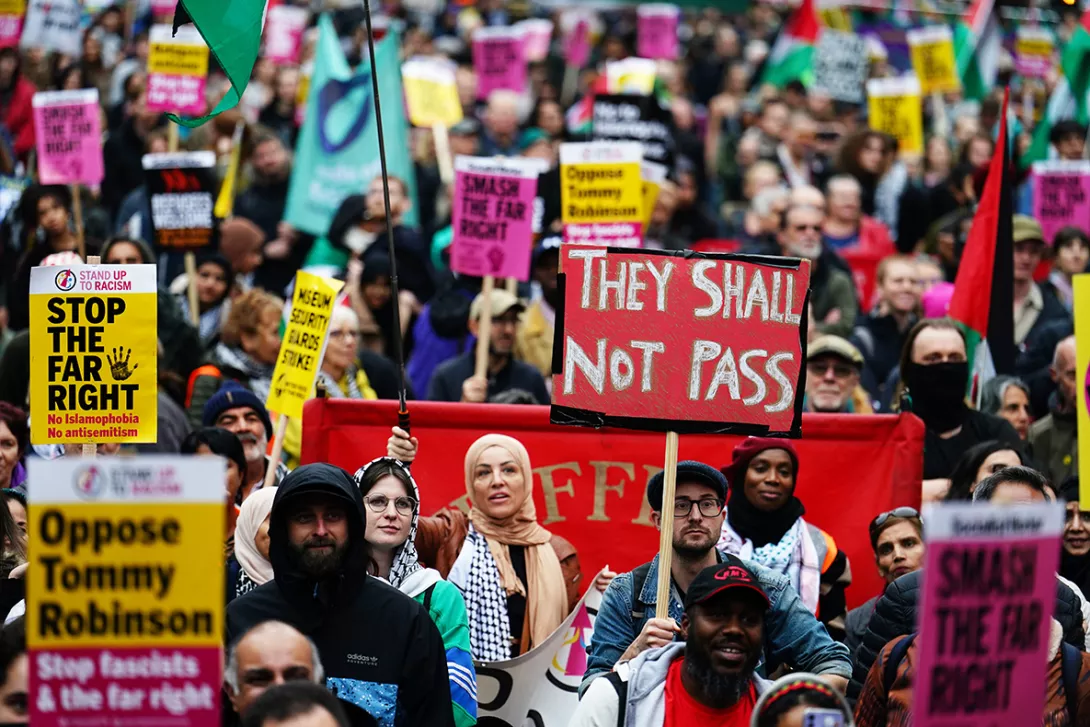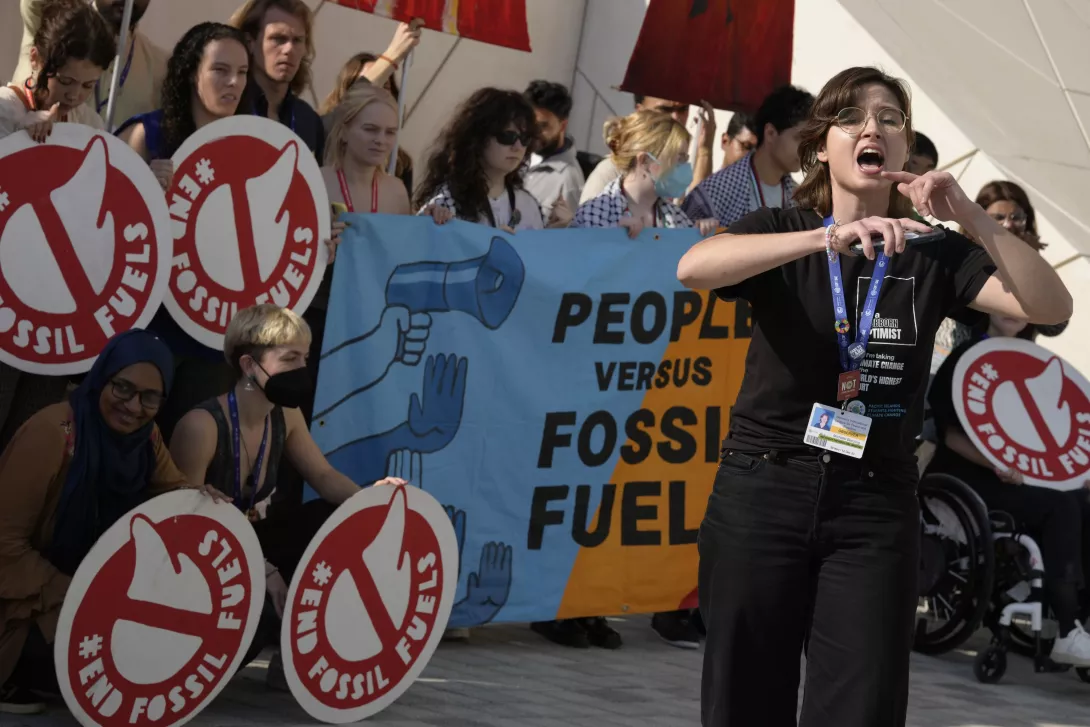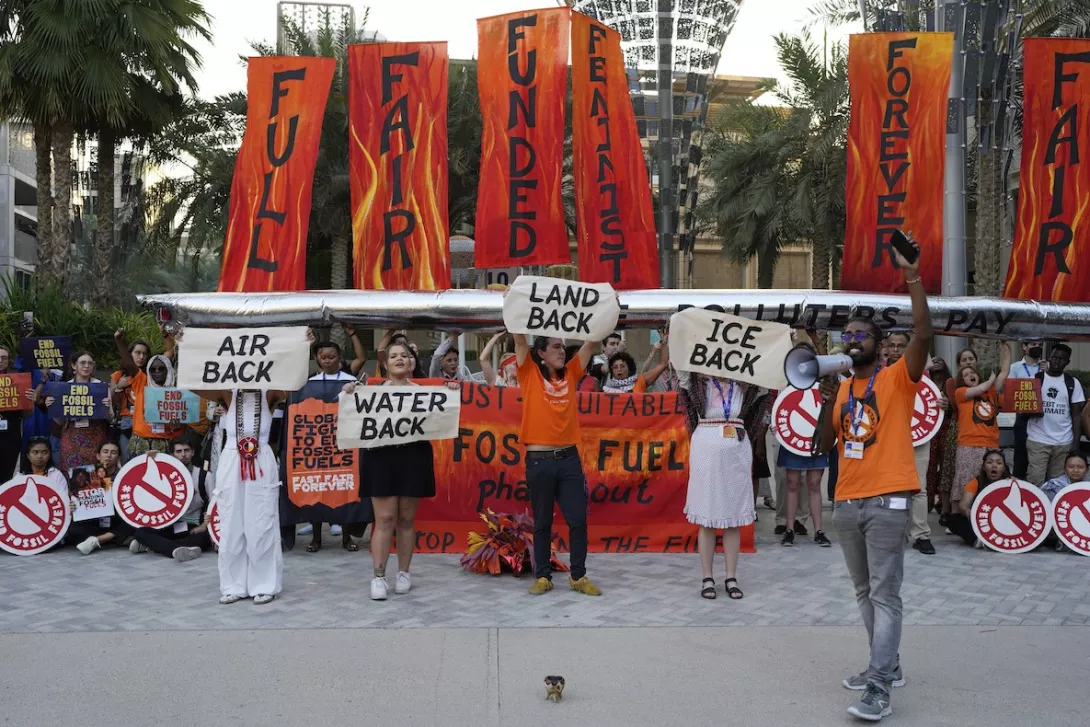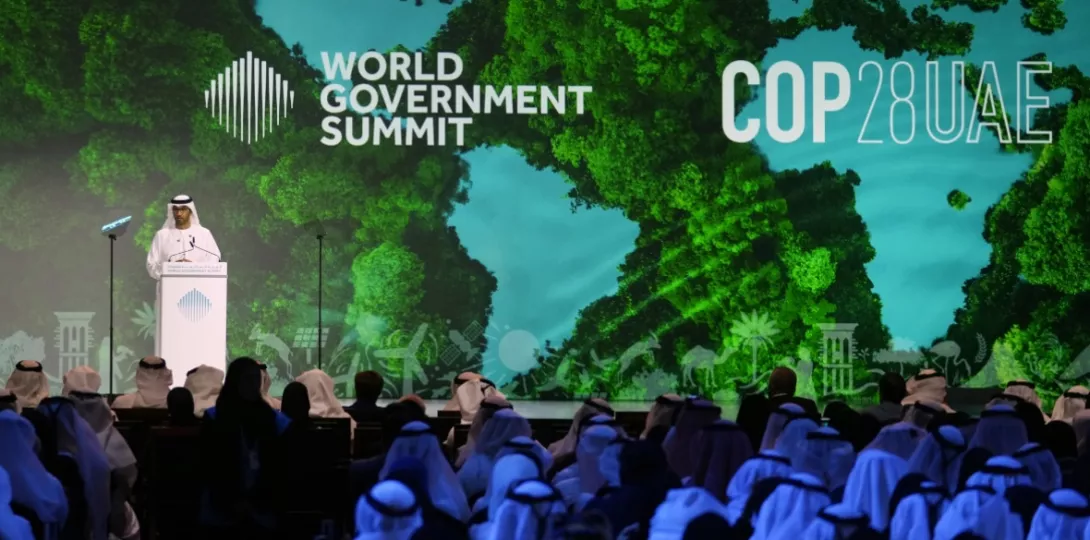
THE United Arab Emirates’ plans to use the Cop28 climate summit to strike new fossil-fuel deals were as predictable as they are symbolic.
Predictable because why else would this despotic Gulf monarchy, whose huge wealth is entirely derived from its vast oil reserves, seek to host Cop28 except to greenwash an economic model utterly dependent on continuing fossil-fuel extraction?
Symbolic because the UAE’s disgraceful conduct is not out of tune with the wider approach of Western governments which hand management of a “just transition” to the very corporations that profit most from the status quo.
The Cop summits are magnets for fossil fuel lobbyists. Cop27 saw 636 fossil fuel industry lobbyists register, larger than the delegation from any individual country — except that of the UAE itself, which perhaps counts as the nation-state equivalent of a fossil-fuel lobbyist.
Their sole purpose will be to dilute and delay action on a global warming crisis which is already causing havoc through prolonged droughts, flash floods and worsening wildfires on every inhabited continent.
Despite half-hearted rebrands like BP dubbing itself “Beyond Petroleum,” the energy giants’ commitment to reducing emissions is as convincing as that of the tobacco industry to reducing smoking.
Awash with cash from the obscene energy profiteering that has hammered households for the last two years, their super-profits have not been used to invest in the renewables revolution they claim to support.
Shell, when it posted a $5 billion quarterly profit this summer, was investing 5.6 times more in fossil fuel extraction than in renewables. BP pumped £1.7bn into oil and gas in that quarter, 11 times the £148 million it put into hydrogen and renewables.
Those are the priorities industry lobbyists will take to Cop28. Does all their lobbying pay off?
Hard to say when our politicians are bought and sold already.
Prime Minister Rishi Sunak’s wife has a stake worth hundreds of millions in her father’s firm Infosys, which announced a lucrative “strategic collaboration” with Shell in 2021.
In May of this year, Infosys signed a five-year contract with BP reported by the Times of India to be worth $1.5bn. A couple of months later Sunak opened hundreds of new licences for oil and gas extraction in the North Sea.
Since posing on the world stage as climate-friendly when hosting Cop26 in Glasgow, the British Tory government has ditched a flagship £11.6bn climate and nature funding pledge, rebranded itself as the party of motorists and escalated attacks on our greenest form of transport, the railways.
It has also doubled down on repressive legislation to crush eco-protesters and stop them calling attention to its destructive policies.
So if the UAE take the biscuit in planning to use Cop28 itself to negotiate new fossil fuel extraction deals, it is only acting in the spirit that dominates these conferences: rank hypocrisy.
To counter the megatons of hot air produced by capitalist politicians bragging about net zero targets, the left needs a clear set of practical policy demands for a more sustainable future.
A U-turn on transport policy is one, and we need it from Labour as well as the Tories. Reducing emissions means reducing private car use, which means a massive expansion in public transport, both buses and trains, so they are convenient, reliable and affordable for everyone.
A mass insulation programme is another, while public ownership of energy so those running the sector don’t have a vested interest in blocking progress is crucial.
Internationally, the key demand of these summits must be for funding commitments to assist poorer countries, which have contributed almost nothing to the climate crisis, in mitigating its effects.
Let the UAE exposé be a wake-up call: the so-called international community isn’t serious about climate change. Governments will act when they are forced to from below.


